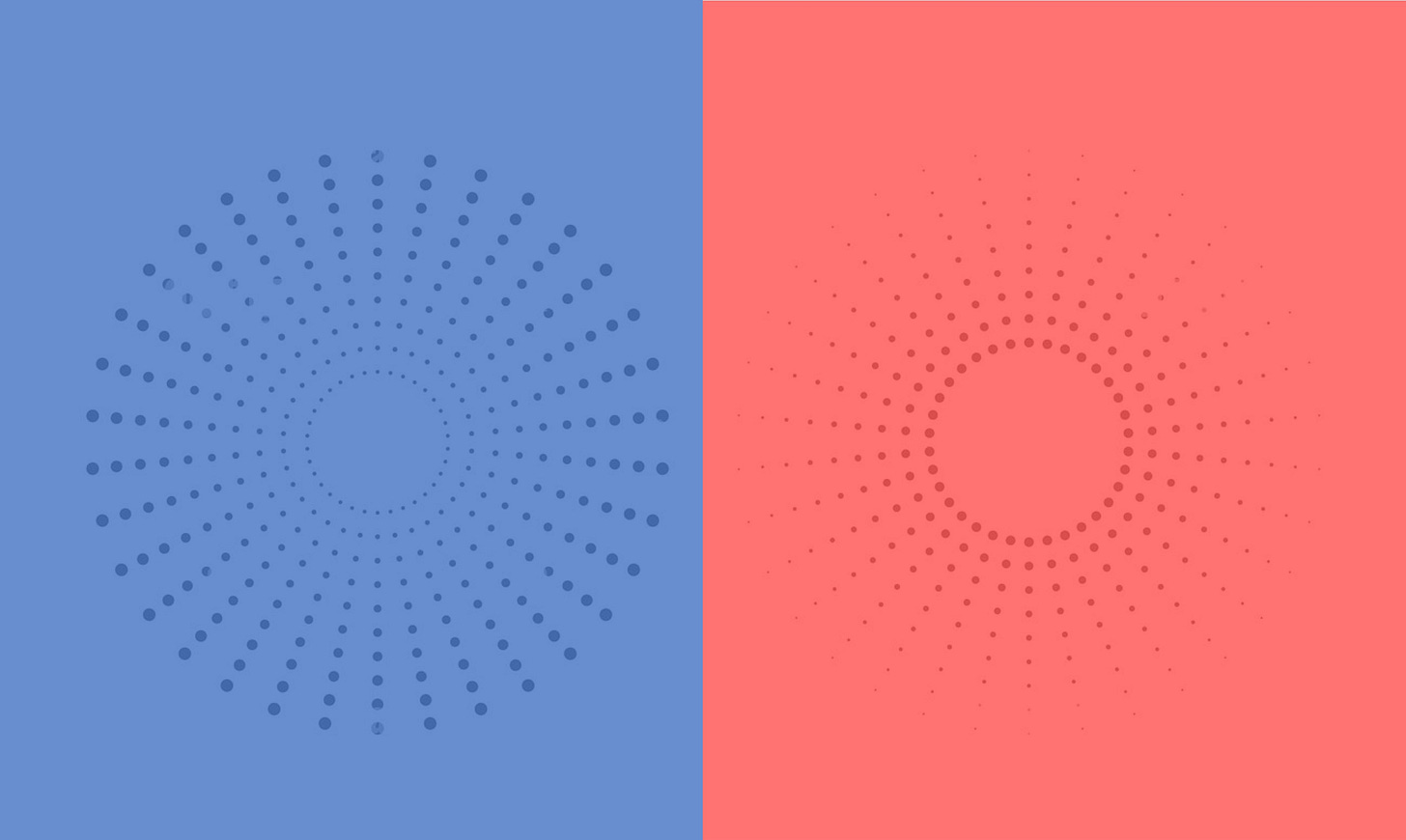Customer Attribute: Self-Moderation
Customers look at your product with a simple question - “can I see myself with this?” When the answer is an easy “yes,” your business fits into a customer’s world faster, decreasing customer acquisition costs and increasing market share. Sure your product solves a problem, but your competition solves the same problem. Your product needs to fit better based on how customers see themselves in the world - including how they moderate their sense of themselves.
The Idea
Conservative and liberal customers differ in how they moderate their sense of themselves through varying levels of self-control versus self-expression. Of course, everyone is capable of both attributes, but the tendency to engage with one more than the other informs the two markets.
Consider the distinction between self-control and self-expression when customers evaluate fashion, cosmetics, cars, restaurants, cell phones, furniture, and much more. When customers pull out their mobile phone or buy a shirt, how does that product reflect their desire for self-control or self-expression? Both groups - conservative and liberal - moderate themselves to different degrees regarding how they want to project themselves in the world around them.
The Research
Time Magazine asked 200,000 subscribers if they agreed with the statement, “I believe that self-expression is more important than self-control.” Liberal customers largely agreed, while conservative customers largely disagreed. It’s an interesting dichotomy - one is more inward-facing (conservative-self-control), while the other is more outward-facing (liberal-self-expression).
A team from the marketing and psychology departments at the University of Cincinnati, Saint Louis University, Indiana University, and the University of North Florida confirmed the finding in the Time Magazine poll. Conservative participants in their study demonstrated significant alignment with self-control, while liberal participants did not. The researchers also discovered that “conservatives showed greater self-control when led to believe that free will benefits self-control, whereas liberals showed greater self-control when led to believe that free will undermines self-control.”
Our customer model notes conservative customers prefer structure, hierarchy, and orderliness. Self-control is endemic in this mindset, so free will is more directed at self-control. More liberal customers prefer a more egalitarian perspective that is more wide-ranging and open. If free will is believed to undermine self-control, then this group will dial back how wide-ranging they are, exercising more self-control.
Regardless of this interesting twist with free will, the two groups diverge with regard to preferences for self-control and self-expression. Each of these two qualities can be expressed in different ways.
Consider another study from the University of Nebraska that examined how liberal and conservative people demonstrate their worldview through facial expressions. The study showed that people with more emotionally expressive faces are perceived to be more liberal. This possibly indicates that a more liberal customer desire for self-expression goes beyond what they say and consume to actual body language. As noted in the study, liberals are prone to “wearing your heart on your face.” This is an interesting cue when customers see your business talk about its products, especially with models or actors or in photography.
Application
Your customers will exhibit some balance between self-control and self-expression, but the tendencies by worldview are clear. It’s also not difficult to look at a product and associated communications to determine if it supports self-control or self-expression.
The critical question is, what does your market want? The answer may differ from what you may think because of a difference in worldview. When you know how your market aligns with self-control or self-expression, you can reinforce the alignment through product development, retail partnerships, communications, and more.
This attribute of self-control vs. self-expression is one of 27 that form a system to help you understand better how your market thinks to create stronger fit. The objective is for your customers to see your products fit into their world more easily. The result is a new lever for growth, efficiency, and customer value.
Many attributes will be covered here in this newsletter, and all will be summarized in the forthcoming book. Other attributes covered previously include:
More to come.


